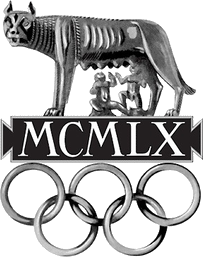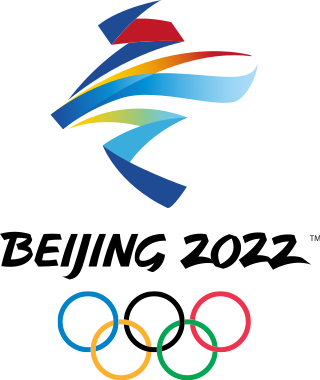
The Winter Olympic Games, also known as the Winter Olympics, is a major international multi-sport event held once every four years for sports practiced on snow and ice. The first Winter Olympic Games, the 1924 Winter Olympics, were held in Chamonix, France. The modern Olympic Games were inspired by the ancient Olympic Games, which were held in Olympia, Greece, from 776 BCE to 394 CE. The Baron Pierre de Coubertin of France founded the International Olympic Committee (IOC) 1,500 years later in 1894, leading to the first modern Summer Olympic Games in Athens, Greece in 1896. The IOC is the governing body of the Olympic Movement, with the Olympic Charter defining its structure and authority. The original five Winter Olympic Sports were bobsleigh, curling, ice hockey, Nordic skiing, and skating. The Games were held every four years from 1924 to 1936, interrupted in 1940 and 1944 by World War II, and resumed in 1948. Until 1992, the Summer Olympic Games and the Winter Olympic Games were held in the same year. A decision to change this was made in 1986, when during the 91st International Olympic Committee session, IOC members decided to alternate the Summer Olympic Games and the Winter Olympic Games on separate four-year cycles in even-numbered years. Also, at that same congress it was decided that 1992 Winter Olympics would be the last to be held in the same year as the Summer Games and that to change the rotation, the games that would be held in 1996 would be brought forward by two years, being scheduled to 1994. After those games, the next were to be held in 1998 when the four-year Olympic Cycle resumed.

Hannelore (Hanni) Wenzel is a retired Liechtensteiner alpine ski racer. Wenzel is a former Olympic, World Cup, and world champion. She won Liechtenstein's first-ever Olympic medal at the 1976 Winter Olympics in Innsbruck, Austria, and its first two Olympic gold medals four years later in Lake Placid, New York.

The 1960 Summer Olympics, officially known as the Games of the XVII Olympiad and commonly known as Rome 1960, were an international multi-sport event held from 25 August to 11 September 1960 in Rome, Italy. Rome had previously been awarded the administration of the 1908 Summer Olympics. However, following the eruption of Mount Vesuvius in 1906, the city had no choice but to decline and pass the honour to London. The Soviet Union won the most gold and overall medals at the 1960 Games.

The 1998 Winter Olympics, officially known as the XVIII Olympic Winter Games, was a winter multi-sport event held in Nagano, Japan, from 7 to 22 February 1998. Twenty-four nations earned medals at these Games, and fifteen won at least one gold medal; forty-eight countries left the Olympics without winning a medal. Competitors from Germany earned the highest number of gold medals (12) and the most overall medals (29). With 10 gold medals and 25 overall medals, Norway finished second in both categories. Denmark won its first – and as of 2018 only – Winter Olympics medal, while Bulgaria and the Czech Republic won their first Winter Games gold medals. Azerbaijan, Kenya, Macedonia, Uruguay, and Venezuela competed for the first time, but none of them won a medal.

The 2018 Winter Olympics, officially the XXIII Olympic Winter Games and also known as PyeongChang 2018, were an international winter multi-sport event held between 9 and 25 February 2018 in Pyeongchang, South Korea, with the opening rounds for certain events held on 8 February, a day before the opening ceremony.
The 1952 Winter Olympics, officially known as the VI Olympic Winter Games, took place in Oslo, Norway, from 14 to 25 February 1952. A total of 694 athletes representing 30 National Olympic Committees (NOCs) participated in the Games, taking part in 22 events from 6 sports.

Ice hockey tournaments have been staged at the Olympic Games since 1920. The men's tournament was introduced at the 1920 Summer Olympics and was transferred permanently to the Winter Olympic Games program in 1924, in France. The women's tournament was first held at the 1998 Winter Olympics.

Curling was included in the program of the inaugural Winter Olympic Games in 1924 in Chamonix although the results of that competition were not considered official by the International Olympic Committee until 2006. Curling was a demonstration sport at the 1932 Games, and then again after a lengthy absence in 1988 and 1992. The sport was finally added to the official program for the 1998 Games in Nagano.
Ice hockey in Germany is one of the more popular sports, and ranks behind Handball and football in spectator favour and meaning. Ice hockey is organized today in Germany by the Deutsche Eishockey Liga, the highest professional league, and by the Deutschen Eishockey-Bund ice hockey federation, which is the sport's federation in Germany and a member of the International Ice Hockey Federation.

Canada has competed at every Winter Olympic Games, and has won at least one medal each time, one of only six nations to do so. By total medals, the country's best performance was in the 2018 Winter Olympic Games where Canadian athletes won 29 medals. Canada set a new record for most gold medals won by a country in a single Winter Olympics with 14 at the 2010 Winter Olympics in Vancouver, Canada. This achievement surpassed the previous record of 13 gold medals held by the Soviet Union (1976) and Norway (2002). Both Germany and Norway matched the record total of 14 gold medals in Pyeongchang in 2018. This record has since been surpassed by Norway with 16 at the 2022 Winter Olympics.

The 2022 Winter Olympics, officially called the XXIV Olympic Winter Games and commonly known as Beijing 2022 (北京2022), were an international winter multi-sport event held from 4 to 20 February 2022 in Beijing, China, and surrounding areas with competition in selected events beginning 2 February 2022. It was the 24th edition of the Winter Olympic Games.

Thorsten Margis is a German bobsledder.

Germany competed at the 2018 Winter Olympics in Pyeongchang, South Korea, from 9 to 25 February 2018, with 153 competitors in 14 sports. They won 31 medals in total, 14 gold, 10 silver and 7 bronze, ranking second in the medal table after Norway at the 2018 Winter Olympics. Germany excelled in ice track events, biathlon, Nordic combined and Ski jumping. The men's ice hockey team took a silver medal, having lost a closely contested final to Olympic Athletes from Russia.
Christina Fellner, née Oswald, is a German retired ice hockey player and record holder for most games played with the German women's national ice hockey team.

Roman Neumayer was an Austrian and German ice hockey executive. He served as the sport director of the German Ice Hockey Federation from 1970 to 1986, and as technical director for the International Ice Hockey Federation from 1986 to 1996. He received the Paul Loicq Award for services to international ice hockey, and was inducted into the German Ice Hockey Hall of Fame.












